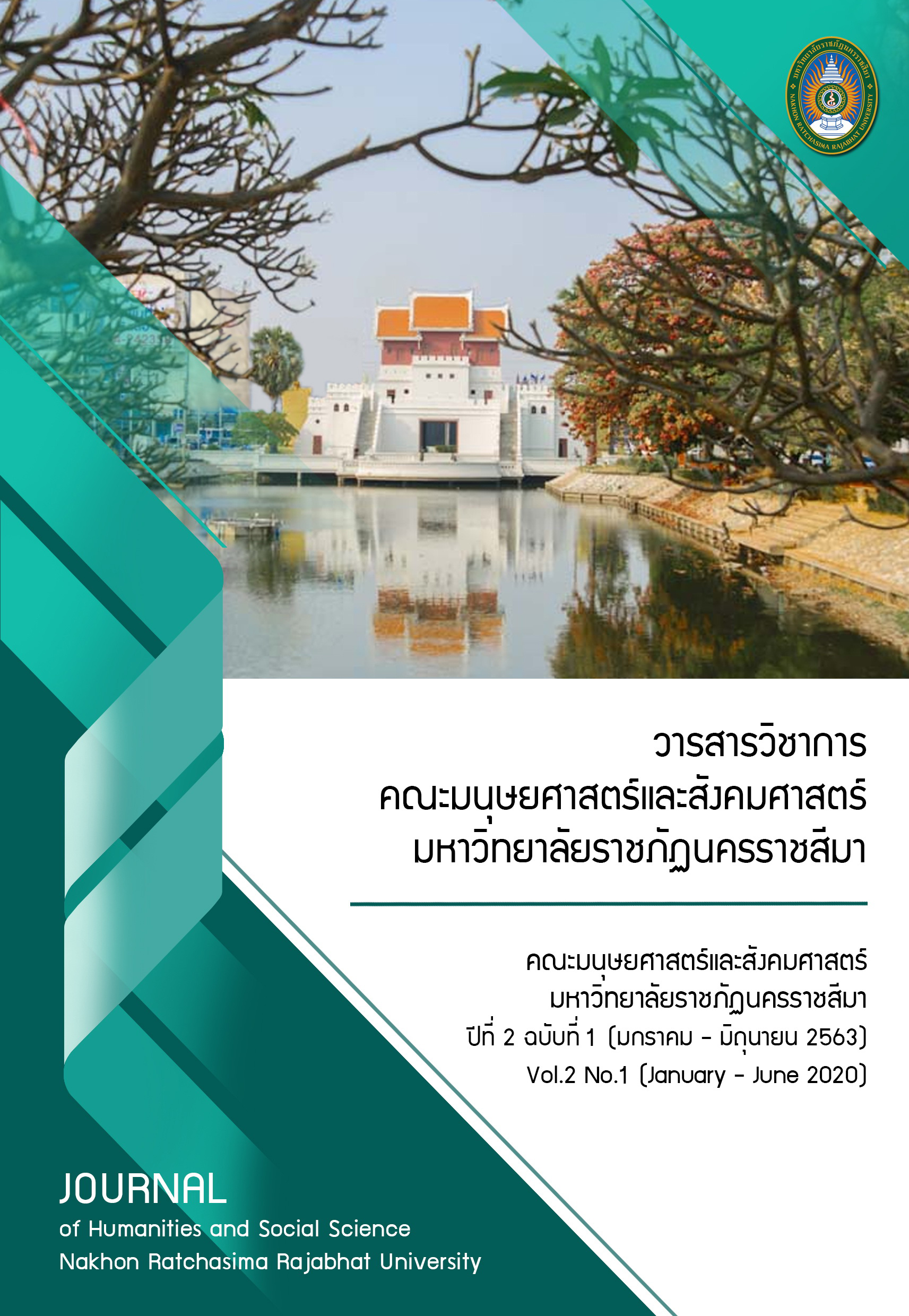LEARNING ICT TOOLS THROUGH TASK – BASED APPROACH : A CASE STUDY OF TEACHERS OF ENGLISH IN UDON THANI PROVINCE, THAILAND
คำสำคัญ:
Teacher Training Programme, Professional Development, Language Education, Self-Directed Learning, Task-based Learning, Computer-Assisted Language Learningบทคัดย่อ
The study aimed to investigate the use of a teacher training programme for teachers of English focusing on learning ICT tools for self-directed professional development. The participants were 32 in-service teachers of English in primary and secondary schools in Udon Thani province. They attended a two-day workshop specifically designed by using task-based approach as a framework. The research instruments comprised three sets of questionnaires. The results revealed that the participants were aware of the importance of professional development and the potential of ICT as a powerful tool for the development of both linguistic and pedagogical skills. However, they needed to be trained in how to use the tool effectively. Moreover, they perceived that a task-based approach was an effective way to learn how to use ICT tools in a limited timeframe. Finally, the follow-up questionnaire revealed that internal and external constraints affected the application of the knowledge they had learned from the training into their classrooms.
เอกสารอ้างอิง
Abrams, Z. I. (2003). The effect of synchronous and asynchronous CMC on oral performance in German. The Modern Language Journal, 87, 157-167. Aitsiselmi, F. (1999). Second language acquisition through email interaction. ReCALL, 11, 4-11.
Arievitch, I. M. (2007). An activity theory perspective on educational technology and learning. In D. W. Kritt & L. T. Winegar (Eds.), Education and Technology: Critical Perspectives, Possible Futures (pp. 49-72). Lanham: Lexington Books. Benson, P. (1997). The philosophy and politics of learner autonomy. In P. Benson & P. Voller (Eds.), Autonomy and Independence in Language Learning (pp. 18-34). London: Longman. Benson, P. (2011). Teaching and Researching Autonomy (2nd ed.). London: Longman. Boulton, A., & Cobb, T. (2017). Corpus use in language learning: A meta-analysis. Language Learning, 67(2), 348-393. Breverton, T. (Ed.). (2009). Immortal words: History's most memorable quotations and the stories behind them. London: Quercus. Charalambos, V., & Glass, G. V. (2007). Teacher professional development and ICT: Strategies and Models. Yearbook of the National Society for the Study of Education, 106(2), 87-102. Fisher, L., Evans, M., & Esch, E. (2004). Computer-mediated communication: Promoting learner autonomy and intercultural understanding at secondary level. Langauge Learning Journal, 30, 50-58. Fitze, M. (2006). Discourse and participation in ESL face-to-face and written electronic conferences. Language Learning & Technology, 10(1), 67-86. Fotos, S. (2004). Writing as talkin: E-mail exchange for promoting proficiency and motivation in the foreign language classroom. In S. Fotos & C. M. Browne (Eds.), New perspectives on CALL for second language classrooms (pp. 109-129). Mahwah, NJ: Lawrence Erlbaum Associates. Greenfield, R. (2003). Collaborative e-mail exchange for teaching secondary ESL: A case study in Hong Kong. Language Learning & Technology, 7, 46-70. Holec, H. (1981). Autonomy in foreign language learning. Oxford: Pergamon. Iluobe, I. O. I. (2013). ICT-pedagogy integration in teacher training and professional development: Sites of learning. International Journal of Technologies in Learning, 19(3), 14-24. Kachru, B. B. (1998). English as an Asian language. Links & Letters, 5, 89-108. Kern, R., & Warschauer, M. (2000). Introduction: Theory and practice of network-based language teaching. In M. Warschauer & R. Kern (Eds.), Network-based Language Teaching: Concepts and Practice (pp. 1-19): Cambridge University Press.


